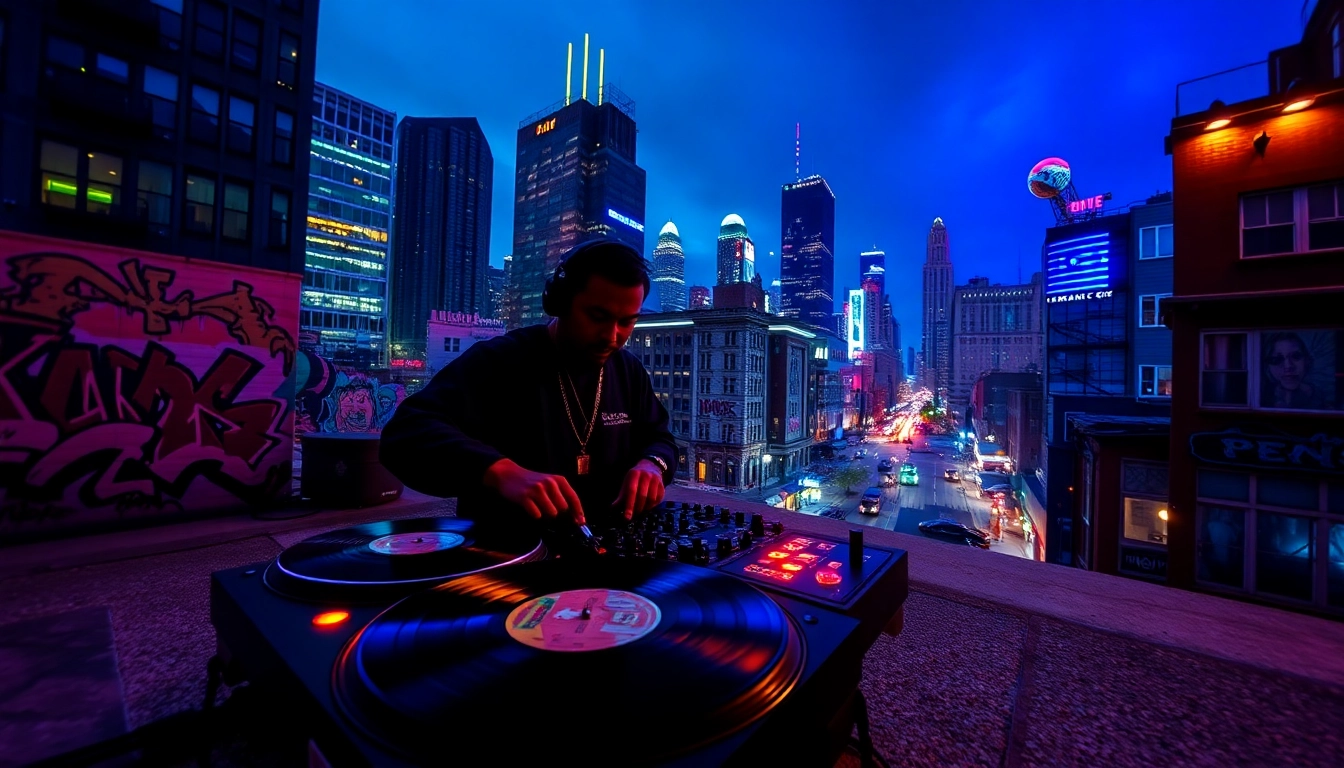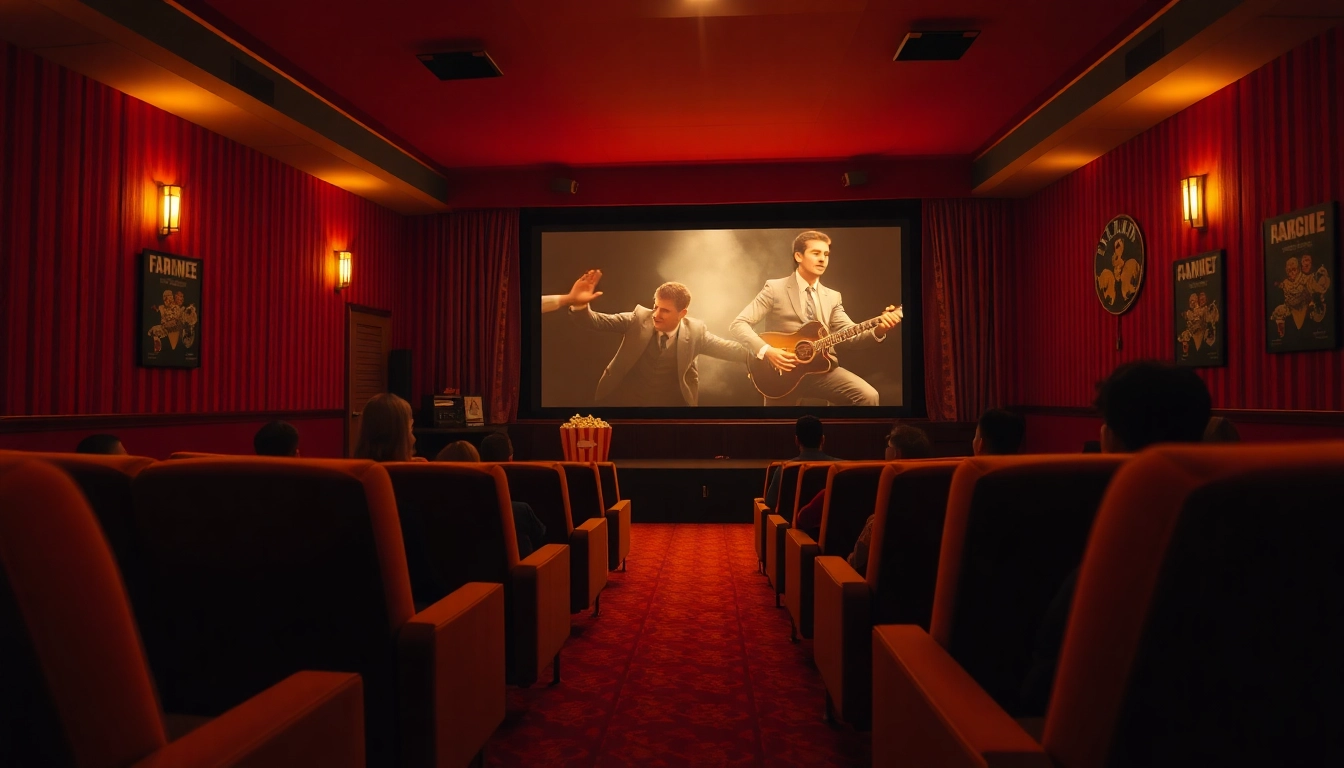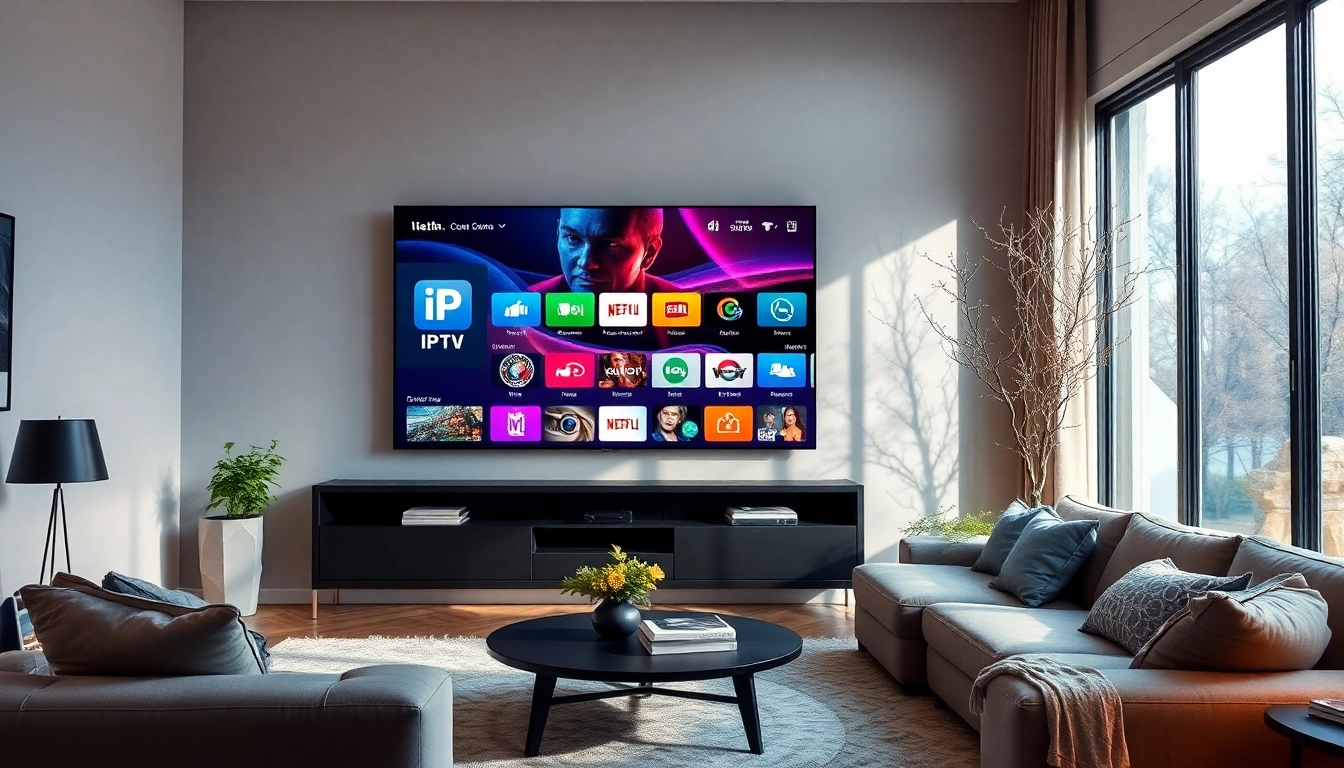Introduction to Hip-hop Mixtapes Chicago
Chicago’s hip-hop scene serves as a vibrant pulse in the broader fabric of American music, continually enriching the genre with its unique sounds and cultural narratives. The city’s mixtape culture, in particular, reflects a landscape where creativity flourishes outside the mainstream, allowing artists to experiment, collaborate, and connect with audiences in dynamic ways. For anyone exploring this rich musical vein, hip-hop mixtapes Chicago are undoubtedly a cornerstone. This introduction sets the stage for a deep dive into the history, artistry, and future of the mixtape culture that has positioned Chicago as a significant hub for hip-hop innovation.
History and Influence of Chicago’s Hip-hop Scene
The roots of Chicago hip-hop can be traced back to the late 1980s, influenced by the struggles and triumphs of urban life in a city marked by both creativity and conflict. The emergence of artists like Common and Twista paved the way for storytelling in lyrics, painting vivid scenes of city life, social issues, and personal journeys. Mixtapes gained popularity as a platform for these artists to showcase their work, often featuring original tracks, remixes, and collaborations—an essential stepping stone in their careers.
As hip-hop evolved through the 1990s and 2000s, Chicago’s artists began to leverage mixtapes to tap into the digital landscape, further widening their audience. The rise of platforms like DatPiff and LiveMixtapes enabled artists to distribute their records directly to fans, bypassing traditional music channels. This transition allowed for greater creative expression, which was essential for propelling underground talent into the public eye.
Key Artists Shaping the Mixtape Landscape
Several key figures have played monumental roles in shaping Chicago’s mixtape landscape:
- Chance the Rapper: Chance revolutionized the mixtape format with his critically acclaimed projects like Acid Rap, proving that high-quality, diverse works can be entirely free to the public.
- Kanye West: While Kanye’s major label success often overshadows his mixtape beginnings, his early works like Get Well Soon showcased his production style and lyrical depth, setting standards for aspiring artists.
- Chief Keef: Emerging as a seminal figure in the drill music scene, Chief Keef’s mixtapes, especially Finally Rich, spotlighted the raw narratives of street life in Chicago, influencing countless artists thereafter.
- Juice WRLD: Although his career was tragically brief, Juice WRLD’s mixtapes like 999 exemplified emotional vulnerability and experimentation beyond conventional hip-hop boundaries.
Importance of Mixtapes in Artist Development
Mixtapes hold a pivotal role in the development of an artist’s career in Chicago. They often provide a sense of freedom for artists to explore their musical identity, experiment with various styles, and hone their craft without the constraints typically associated with commercial records. Additionally, mixtapes serve as vital tools for gaining exposure; through sharing their work, artists can build a grassroots following that often translates into larger fan bases once they transition to official releases.
Moreover, mixtapes frequently showcase collaborations among emerging and established artists, fostering a sense of community and mutual support. This collaboration contributes to a dynamic marketplace where talent is recognized and rewarded based on merit rather than popularity alone.
Top Hip-hop Mixtapes from Chicago
Classic Mixtapes You Can’t Miss
Exploring Chicago’s hip-hop classics is essential to appreciate the city’s musical narrative. Here are standout mixtapes that have marked their era:
- Common – Can I Borrow a Dollar? (1992): Often regarded as a landmark project, this mixtape set the tone for introspective and socially conscious rap in Chicago.
- Twista – Adrenaline Rush (1997): Fast-paced flows and intricate rhymes defined Twista’s career, and this mixtape laid the groundwork for his future success.
- Lupe Fiasco – Fahrenheit 1/15 (2006): Lupe’s mixtape highlights his storytelling prowess and lyrical sophistication, serving as a precursor to his commercially successful albums.
- Chance the Rapper – Acid Rap (2013): A cultural phenomenon, this mixtape captured the essence of youthful exuberance and emotional depth, helping to redefine the genre.
Modern Releases Making Waves
Contemporary artists continue to push the limits of hip-hop through their innovative mixtapes:
- Saba – Care for Me (2018): This mixtape combines personal narrative with political commentary, showcasing Saba’s mature lyricism and evocative storytelling.
- Noname – Room 25 (2018): Noname’s blend of poetry and music in this release reflects her unique voice and addresses societal issues with profound insight.
- G Herbo – PTSD (2020): G Herbo’s reflections on trauma and growth resonate strongly, presenting a gripping depiction of life in Chicago’s gritty surroundings.
- Joey Purp – iiiDrops (2016): This mixtape highlights a fresh take on Chicago hip-hop, fusing various influences and featuring collaborations with other rising artists.
Underground Hidden Gems
Beyond mainstream recognition, numerous underground mixtapes embody the essence of Chicago’s hip-hop culture:
- Open Mike Eagle – Dark Comedy (2014): An exploration of modern anxieties wrapped in clever lyricism, Open Mike’s tape deserves more attention than it receives.
- Alex Wiley – Village Party (2015): This colorful and eclectic mixtape showcases Wiley’s range and potential as a notable artist from Chicago.
- Vic Mensa – Innocents Lost (2016): A raw and candid insight into life experiences that shaped Mensa, this mixtape offers both a personal and political lens.
Exploring Various Hip-hop Mixtape Styles
The Evolution of Mixtapes in Chicago
The mixtape format itself has undergone considerable evolution since its inception. Initially, mixtapes served as curated collections of various artists, often allowing DJs to gain traction by showcasing emerging talent. As digital technology disrupted the music industry, Chicago artists began to utilize mixtapes as direct lines to their fans, sharing their music for free on platforms like SoundCloud and DatPiff.
The style of mixtapes has also diversified. From traditional DJ-driven compilations to more intricate studio-quality projects, mixtapes now encompass a broad spectrum of sounds and styles, catering to a variety of audiences while pushing artistic boundaries.
How Genres Influence Mixtape Production
Chicago’s rich cultural tapestry and diverse musical influences contribute significantly to the sound of its hip-hop mixtapes. The interplay among genres like soul, jazz, rock, and electronic elements shapes the sonic landscape. Artists often incorporate various styles, leading to innovative sounds that challenge traditional hip-hop norms.
For instance, artists like Saba have merged jazz influences with hip-hop, while others, like Lil Durk, emphasize drill beats that reflect the realities of life on the streets. Each artist brings unique influences to their mixtapes, resulting in an eclectic mix that resonates with a wide audience.
The Rise of Drill Mixtapes in the City
Drill music, characterized by its dark beats and graphic lyrical content, emerged from Chicago in the early 2010s, signaling a new wave of expression among its youth. Artists like Chief Keef and Lil Durk became pivotal in popularizing the genre, using mixtapes to narratively depict their lived experiences and the harsh realities of street life.
This rise in drill music has redefined the mixtape scene, propelling a culture where raw emotion and authenticity reign supreme. Drill mixtapes often draw significant attention for their narratives, reflecting both personal struggles and broader societal issues in Chicago.
Creating Your Own Hip-hop Mixtape
Key Elements of a Memorable Mixtape
Creating an impactful mixtape requires more than just a collection of songs. Here are vital elements to include:
- Theme: Establish a cohesive theme that ties the entire mixtape together. Whether it’s storytelling, emotional struggles, or a celebration of life, a clear focus can enhance listener engagement.
- Track Order: The sequence of tracks can significantly affect the listener’s experience. Thoughtful transitions and pacing can guide the emotional flow of the mixtape.
- Collaborations: Inviting other artists to feature on your mixtape can introduce fresh perspectives and attract their fanbases, broadening your audience.
Selecting Tracks that Resonate
The tracks you choose for your mixtape should reflect your artistic identity and resonate with your target audience. Consider including:
- Original Songs: Showcase your unique sound and lyrical skill with original compositions.
- Covers and Remixes: Interpret existing tracks in your style to demonstrate versatility and creativity.
- Exclusive Releases: Offering exclusive content creates buzz and gives fans a reason to engage with your mixtape actively.
Production Tips to Elevate Your Sound
Production quality can make or break a mixtape. Here are several tips to enhance your recordings:
- Invest in Quality Equipment: High-quality microphones, mixing boards, and software can significantly improve your sound.
- Work with Experienced Producers: Collaborating with seasoned producers can provide valuable insights and elevate your tracks.
- Focus on Mixing and Mastering: Professional mixing and mastering are crucial for achieving a polished, radio-ready sound.
Future of Hip-hop Mixtapes in Chicago
Emerging Artists to Watch
The future of Chicago hip-hop looks promising, with a new generation of artists emerging. Spotlighting artists like Polo G and Denzel Curry, who are already gaining attention, can help forecast trends in the mixtape culture. These artists are not only pushing their limits musically but are also popularizing new narratives within the city’s hip-hop scene.
Additionally, platforms like SoundCloud continue to be essential for discovering up-and-coming talent, fostering an environment where artists can thrive without traditional barriers.
Impact of Streaming on Mixtape Culture
Streaming services have transformed the way mixtapes are released and consumed. Accessibility to platforms like Spotify and Apple Music means artists can reach global audiences instantly. This democratization of music enhances the potential for mixtapes to gain traction quickly and maintain relevance in a rapidly changing industry.
Nonetheless, the abundance of content can also lead to challenges regarding visibility; artists need innovative marketing strategies to stand out in a crowded landscape.
Trends Shaping the Mixtape Community
As the music industry evolves, so does the mixtape community. Some notable trends include:
- Collaboration Over Competition: Artists are increasingly collaborating across genres and styles, creating unique mixtape projects that break traditional boundaries.
- Integration of Visual Media: Many artists are complementing their mixtapes with visual storytelling, utilizing platforms like YouTube and Instagram to engage fans visually.
- Focus on Mental Health and Personal Issues: The recent wave of artists sharing their struggles and themes of self-care and mental health in their mixtapes signifies a cultural shift that resonates with listeners.
Chicago’s mixtape scene remains dynamic and vital, influencing the global hip-hop landscape. With its historical roots, ongoing evolution, and emerging talents, the narrative of hip-hop mixtapes from Chicago is one of resilience and creativity. As we continue to embrace this artistic form, the mixtape culture promises to evolve, reflecting the voices of the artists and their communities well into the future.



